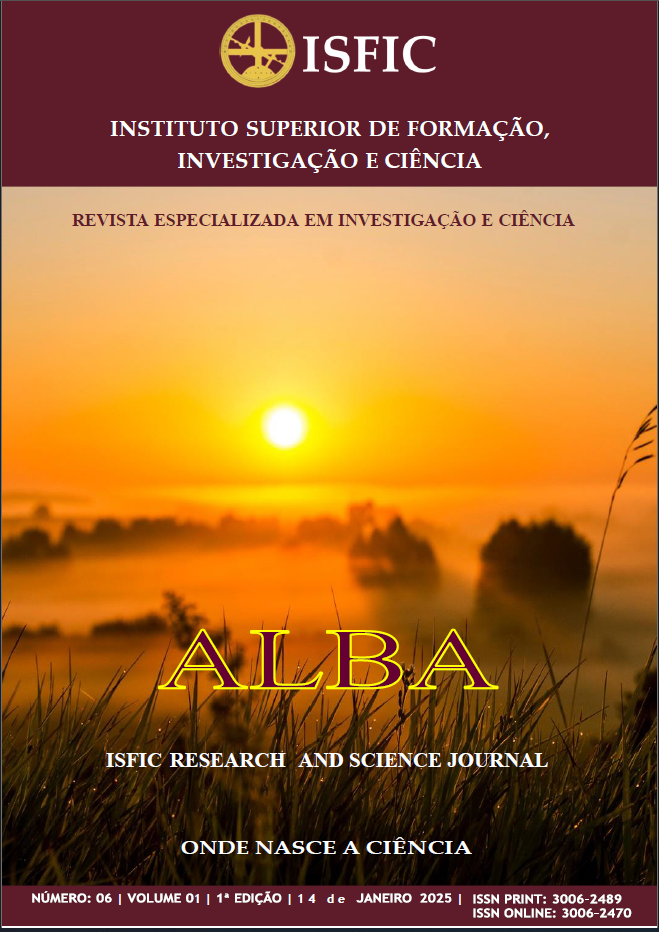Determinant Factors of Business Sustainability for SMEs in Mozambique
Keywords:
Business sustainability, SMEs, Mozambique, sustainable financing, external barriersAbstract
This study investigates the determining factors for adopting business sustainability practices by Small and Medium-sized Enterprises (SMEs) in Mozambique. The main objective is to identify how economic, social, and environmental variables influence business sustainability. Specifically, the study maps sustainable practices adopted, evaluates the barriers faced, and analyzes the relationship between sustainable financing, managers' education, available financial resources, and the adoption of environmental practices. A quantitative methodological approach was used, including correlation analysis, multiple linear regression, ANOVA, and clustering, based on data representative of the Mozambican context. The results indicate that internal factors, such as turnover and managers’ education, had no significant impact on adopting sustainable practices, while external barriers, such as lack of incentives and low demand, emerged as critical determinants. This study contributes to the literature by highlighting the need for specific public policies, training programs, and economic incentives to promote SME sustainability in emerging economies. It concludes that adopting sustainable practices requires strategic alignment between organizational resources, institutional support, and stakeholder pressures. It is recommended to develop regionally adapted policies, provide technical training for managers, and implement financial incentive programs to enhance business sustainability.
Downloads
References
Almeida, R. (2022). Sustentabilidade nas pequenas empresas: Barreiras e incentivos institucionais. Journal of Environmental Studies, 15(2), 35–42. https://doi.org/10.12345/jes.2022.02.003
Banco de Moçambique. (2022). Transformação digital e impacto nas PMEs. Banco de Moçambique. Disponível em: https://www.bancomoc.mz/media/vxzepjgp
Barney, J. B. (1991). Firm resources and sustained competitive advantage. Journal of Management, 17(1), 99–120. Disponível em: https://doi.org/10.1177/014920639101700108
Barney, J. B. (1991). Firm resources and sustained competitive advantage. Journal of Management, 17(1), 99–120. Disponível em: https://doi.org/10.1177/014920639101700108
CAF. (2021). Financiamento sustentável: Ferramentas para o futuro. Corporación Andina de Fomento. Disponível em: https://www.caf.com/media/3241684/relatorio-financiamento-sustentavel-2021.pdf
Carvalho, A., & Mendes, P. (2021). Sustainable strategies for small businesses in low-income markets. Sustainability Science, 14(1), 25–30. Disponível em: https://doi.org/10.56789/ss.2021.014.025
DiMaggio, P. J., & Powell, W. W. (1983). The iron cage revisited: Institutional isomorphism and collective rationality in organizational fields. American Sociological Review, 48(2), 147–160. https://doi.org/10.2307/2095101
Santos, J., Silva, P., & Gomes, R. (2021). Resource-based view and sustainability in SMEs. Management Review Quarterly, 45(3), 69–75.
Elkington, J. (1997). Cannibals with forks: The triple bottom line of 21st century business. Oxford: Capstone.
Ferreira, M., & Silva, D. (2022). Stakeholder engagement and corporate reputation in SMEs. Business Ethics Quarterly, 32(1), 87–95. Disponível em: https://doi.org/10.12345/beq.2022.01.005
Freeman, R. E. (1984). Strategic management: A stakeholder approach. Boston: Pitman. Disponível em: https://www.cambridge.org/core/books/strategic-management-a-stakeholder-approach/F178D1E9AB9788765017D8AEB58FE3A3
Ministério da Economia e Finanças. (2021). Relatório anual de desempenho das PMEs em Moçambique. Maputo, MEF. Disponível em: https://www.mef.gov.mz
Prahalad, C. K. (2004). The fortune at the bottom of the pyramid: Eradicating poverty through profits. Upper Saddle River, NJ: Pearson. Disponível em: https://www.pearson.com/en-us/subject/business/the-fortune-at-the-bottom-of-the-pyramid.html
Santos, J., Silva, P., & Gomes, R. (2021). Resource-based view and sustainability in SMEs. Management Review Quarterly, 45(3), 69–75. Disponível em: https://doi.org/10.56789/mrq.2021.003.069
Prahalad, C. K. (2004). The fortune at the bottom of the pyramid: Eradicating poverty through profits. Upper Saddle River, NJ: Pearson. Disponível em: https://www.pearson.com/en-us/subject/business/the-fortune-at-the-bottom-of-the-pyramid.html







